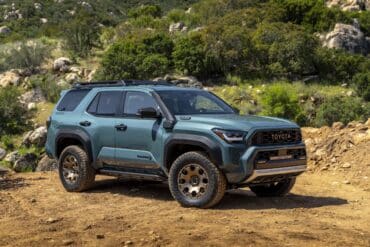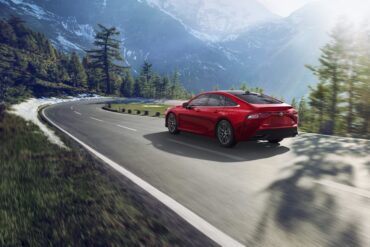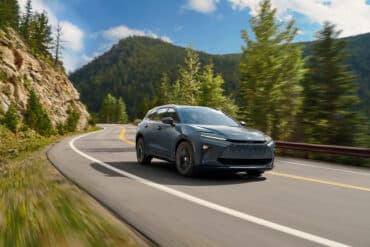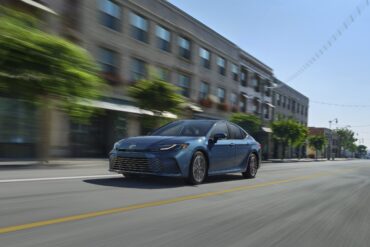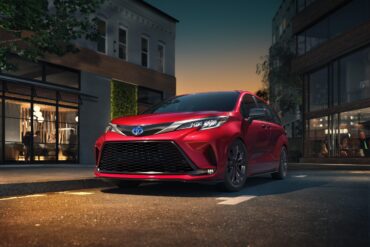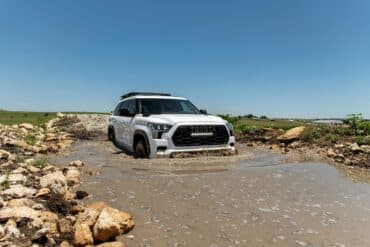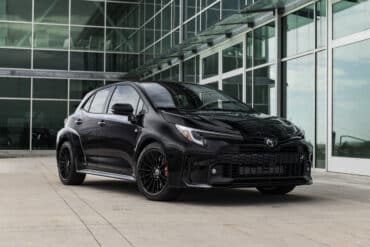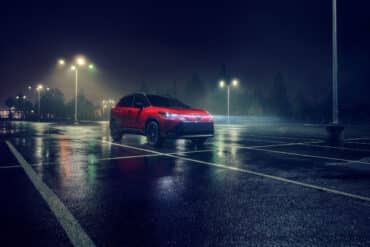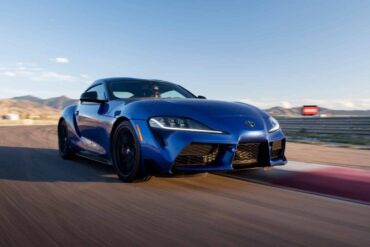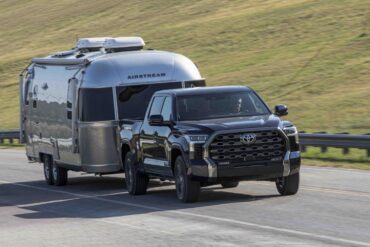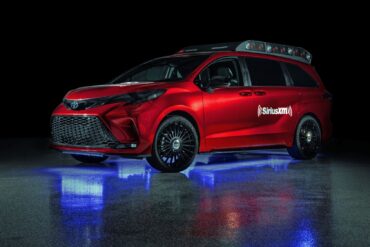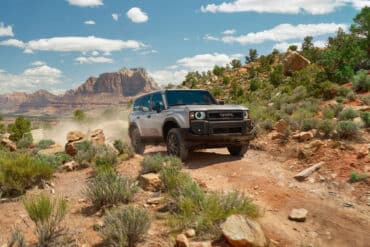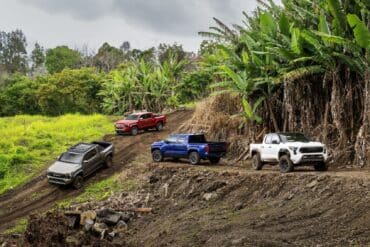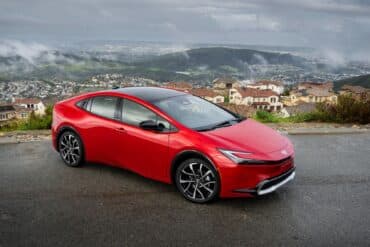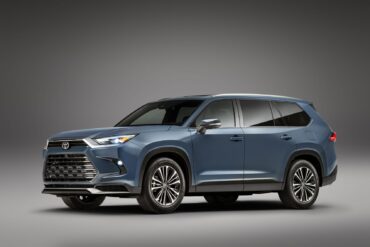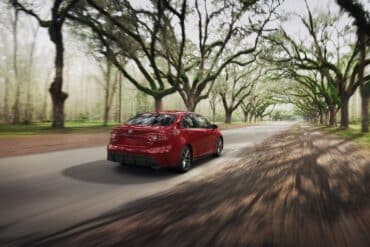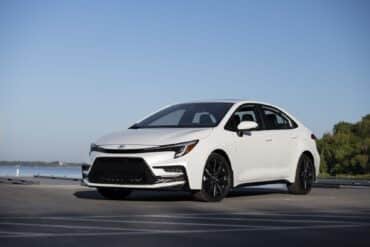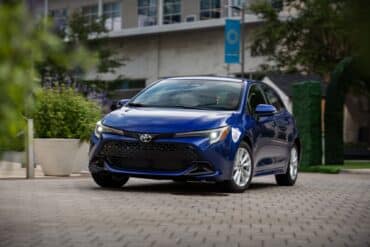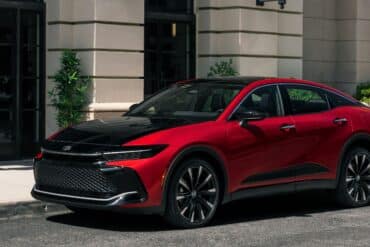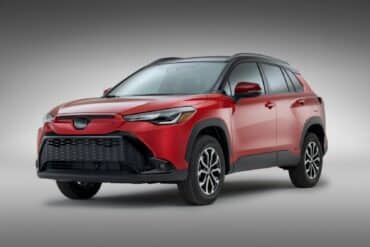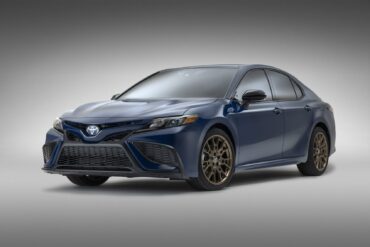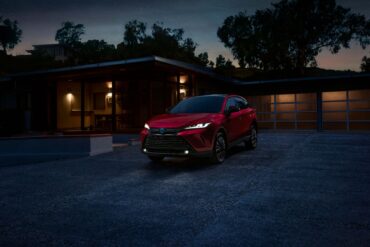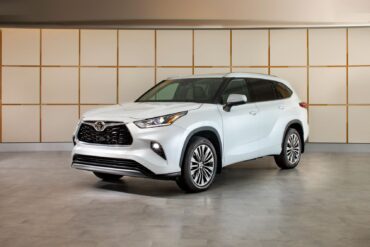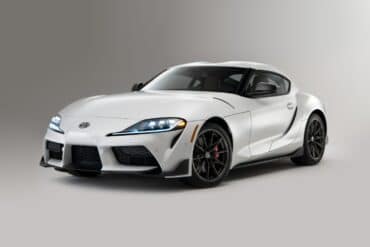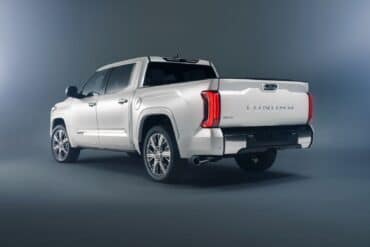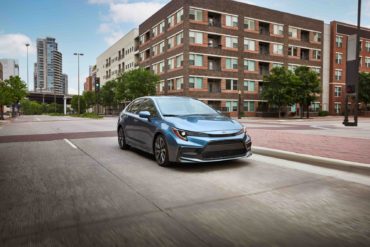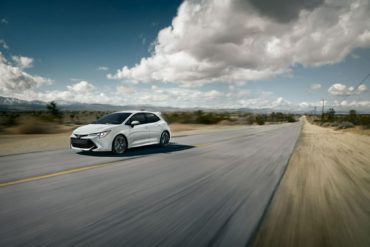The 2025 Toyota 4Runner marks the much-awaited sixth-generation variant of the Japanese automaker’s top-selling midsize SUV.
Toyota

Toyota has one of the largest footprints in North America, with 14 plants across the continent and another 1,800 dealerships. Toyota vehicles, including those sold under the Lexus name, routinely rank among the most reliable with lower costs of ownership on average.
The Yaris, Camry, and Corolla are ideal for those on a budget, but the brand also offers smaller and more affordable SUVs and crossovers like the RAV4, C-HR, and 4Runner. Toyota also makes a line of reliable trucks with the Tacoma and Tundra.
Toyota has historically been known for their reliability and fuel economy. They have also created one of the most legendary sports cars on the planet – the Toyota Supra – which has recently made a comeback as a new model, joining the lineup next to the GT86 RWD sports car.
The 2024 Toyota Mirai is a fuel-cell electric vehicle (FCEV for short) with a "plug-less" system that converts hydrogen into electricity.
The 2025 Toyota Crown Signia made its debut at the 2023 Los Angeles Auto Show. It wears a similar hammerhead...
The 2025 Toyota Camry is the much-awaited ninth-generation variant of the automaker’s popular midsize sedan, and we’re not surprised it...
The Toyota RAV4 is entering the 2024 model year with no significant changes. We included the RAV4 on our best...
There are no significant changes for the 2024 Toyota RAV4 Hybrid, something we didn’t expect from a top-selling nameplate that...
The 2024 Toyota Sienna is the only hybrid minivan you can buy today (the Chrysler Pacifica Hybrid is a plug-in...
The 2024 Toyota Sequoia is fresh from its highly-anticipated third-generation debut. It’s entering the new year with a bevy of...
Fresh from its 2023 debut, the 2024 Toyota GR Corolla is entering the new year with a few changes. Due...
The 2024 Toyota Corolla Cross Hybrid will enter the new model year with a hybrid-exclusive Nightshade Edition that adds blacked-out...
The 2024 Toyota GR Supra remains part of the much-awaited fifth-generation model that arrived in 2019. It initially drew the...
The 2024 Toyota Tundra, fresh from its third-generation revamp in 2022, has a couple of new updates for its seven-trim...
While the Dodge Caravan and Plymouth Voyage set off a wave of minivan mania following their debut in 1983, those...
Toyota’s North American Land Cruiser fans can heave a sigh of relief. The 2024 Toyota Land Cruiser marks the comeback...
The 2024 Toyota Tacoma marks the fourth-generation variant of the brand’s midsize pickup. It follows the revised and all-new versions...
2023 Toyota Prius Prime in Supersonic Red.
The 2024 Toyota Grand Highlander made an early debut at the 2023 Chicago Auto Show. Toyota calls it the “ultimate...
The 2023 Toyota Corolla Hybrid is positioned for a broader audience. The hybrid version of the brand’s popular compact sedan...
Japanese auto giant Toyota was the first to say its 2023 Toyota Corolla Sedan is a “much-changed car,” and we...
Toyota is shaking things up for its 2023 Corolla Hatchback. It’s still part of the twelfth-gen variant that arrived in...
The 2023 Toyota Crown is the Japanese automaker’s newest flagship crossover sedan. The latest Crown is riding on the brand’s...
Toyota introduced the Corolla Cross in 2021 to slot between the iconic RAV4 and the quirky CH-R compact SUV. It...
The 2023 Toyota Camry remains part of the eighth-gen variant that debuted in 2018. It’s getting a bit long in...
The 2023 Toyota Venza is the latest to receive the Nightshade Editon package that adds dark styling elements to Toyota’s...
The 2023 Toyota Highlander has received comprehensive updates to keep it competitive against worthy rivals like the Kia Telluride and...
Toyota is making all the right moves with its revitalized 2023 GR Supra. After appeasing our heartaches by giving the...
Toyota has finally revealed the 2023 GR Corolla after making us all drool over the hottest of hot hatches, the...
The all-new, third-generation 2022 Toyota Tundra is a long time coming. The preceding model’s been on the market since 2007,...
Japanese auto giant Toyota recently surpassed General Motors as the best-selling automaker in the United States, outselling GM by 114,000...
The Toyota Corolla needs no introduction. The Corolla, in general, is the world’s best-selling car and remains a solid, reliable,...

